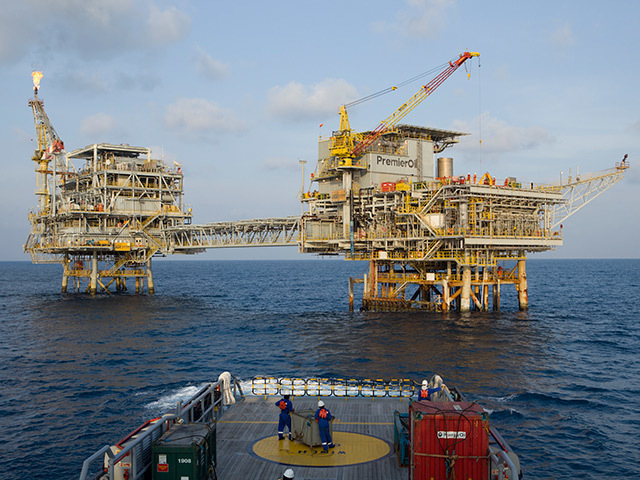
The chief executive of Premier Oil has said a depreciating sterling rate has helped steady the firm’s financial footing.
In today’s company update, the operator revealed operating expenditure (OPEX) was sitting at $16 per barrel of oil. The number is 14% below budget. The firm said a “weaker sterling exchange rate” will continue to reduce “the cost of sterling denominated opex, capex and debt”.
Premier Oil’s debt is $2.6billion. “Negotiations with lenders are progressing well with the main covenant test deferred while discussions are finalised,” according to the firm.
The North Sea operator is producing 61,000 barrels of oil per day (bopd). Its newest producer, Solan, is flowing at rate of 11,000 bopd. It’s expected to plateau at 20,000 to 25,000 bopd.
The firm, which was forced to suspend its shares earlier this year, also said it had successfully completed the integration of E.ON UK’s asset portfolio.
Chief executive Tony Durrant said: “Over the period, we have delivered a robust production performance, achieved first oil from Solan, completed the E.ON acquisition and reached key milestones on the Catcher project.
“We have continued to secure cost reductions across the business and are set to benefit from recent foreign exchange movements.
“We now look forward to a rising production profile and, with Solan on-stream, significantly lower committed capital expenditure. At current oil prices, we start to generate free cash flow later this year which positions us well to manage the balance sheet whilst retaining some optionality for future growth projects.”
The company said its North Sea Catcher development was still on schedule with the FPSO hull now in Singapore. The project’s costs are now 20% lower than what was originally tallied at the time of its sanction.
Catcher is expected to hit a plateau rate of 50,000 boepd. It’s scheduled to deliver first oil in 2017.